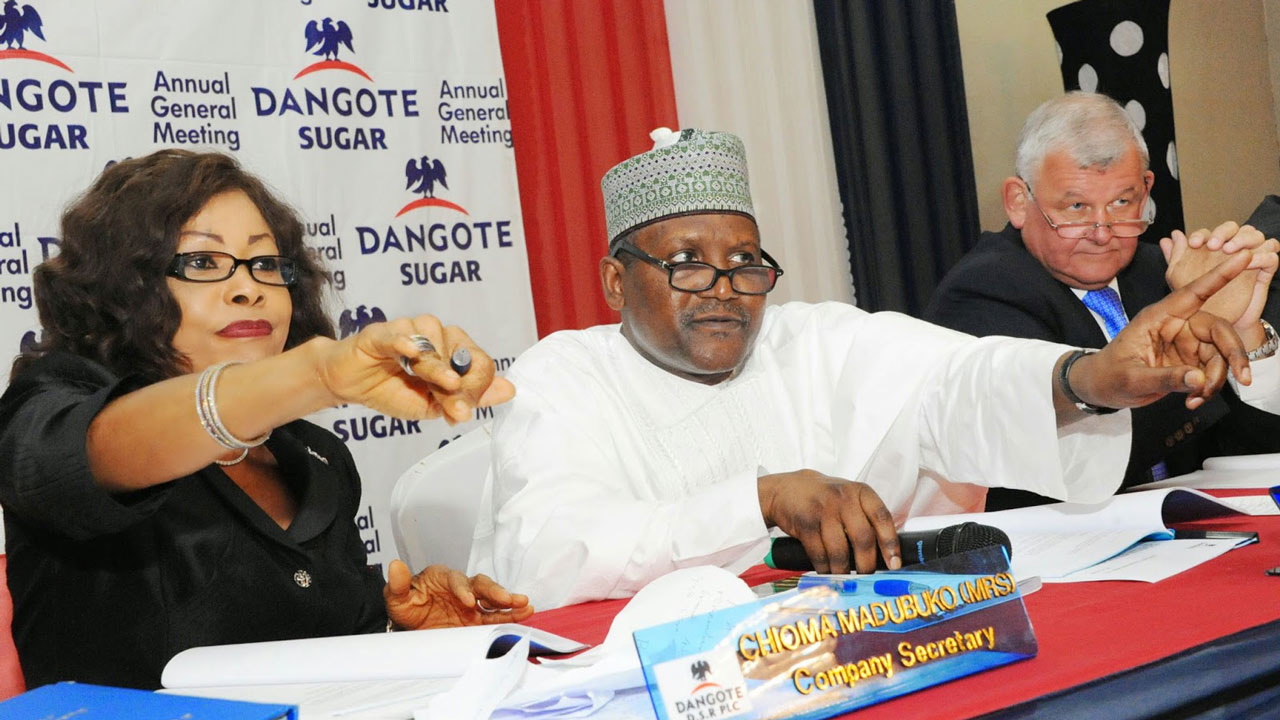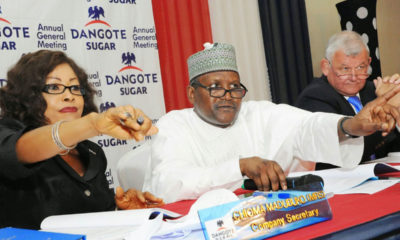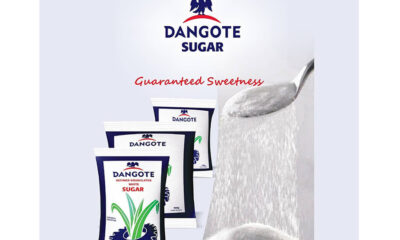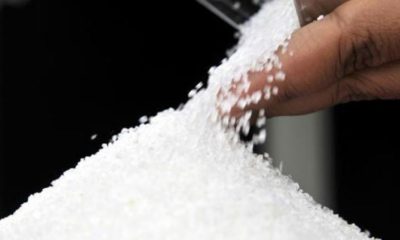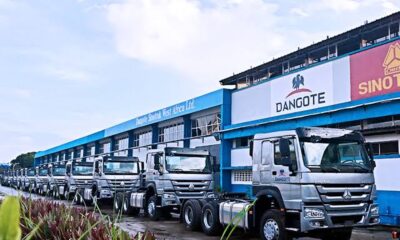Dangote Sugar Refinery Plc has urged the government to faithfully follow through with the Backward Integration Policy in the sugar industry as the nation stands to rake in foreign exchange up to $700 million yearly from Sugar production self-sufficiency.
Chairman of Dangote Sugar Refinery, Aliko Dangote, on Thursday, at its 15th Annual General Meeting (AGM) held in Lagos, said that allowing for distortions in the sugar masterplan framework will adversely affect the target of the nation attaining self-sufficiency as projected.
He described the backward integration policy as commendable which will not only reduce imports of raw sugar but save the nation enormous foreign exchange used for importation.
Dangote expressed delight that the BIP in the Sugar industry is going on well and added “if the National Sugar Master Plan is followed strictly and the players all follow the rules, the country will be better for it as Nigeria will save between $600 million and $700 million annually as forex.”
He stated that the backward integration policy of Dangote Sugar Refinery is recording appreciable progress even as he declared the company’s irrevocable commitment to the policy.
Addressing the shareholders, Dangote opined that despite the disruptions in the economy occasioned by the Covid-19 pandemic, Dangote Sugar Refinery has announced an increase in production volume which rose by 13.7 percent to 743,858 tonnes in the financial year ended December 31, 2020, compared to 654,071 tonnes in 2019.
He stated that the Company posted a Group turnover of N214.3 billion a 33 percent increase over the N161.1 billion in 2019, while in the same period the Sugar Group also posted a 6.9 percent increase in sales volume from 684,487 tonnes in 2019 to 731,701 tonnes in 2020.
Therefore, the Board of the company declared a dividend payment of N18.22 billion to the shareholders, amounting to N1.50kobo per ordinary share of 50k each.
According to Dangote, the improvements were attributable to operations optimization strategy despite the disruption caused by civil unrest in the last quarter of the year. “Our growth continued to benefit from the sustained efforts to drive customer base expansion and several trade initiatives and investment.”
Dangote said the Company has revised its sugar production target to 550,000 metric tonnes achievable by 2024 in line with the revised plan on the BIP by the federal government.
In his remarks, the Group Managing Director/Chief Executive Officer, Mr. Ravindra Singhvi, speaking on the results said the sugar group continued the growth path with commitments to improve performance and generate value for all stakeholders.
He explained that this was reflected in the sales volume delivery of 731,701 tonnes, and production of 743,858 tonnes being a 6.9 percent and 13.7 percent increase in volumes over the comparative year 2019.
He said the Company would ensure all hands are on deck to meet the targeted 550,000tonnes projected to be achieved by 2024. “Our Backward Integration goal is to become a global force in sugar production, by producing 1.5M MT/PA of refined sugar from locally grown sugar cane for the domestic and export markets”.
According to him, “our focus on the implementation of our key strategies in the face of the several challenges posed by the COVID Pandemic, the peculiarities of the Apapa traffic situation amongst others we achieved a topline growth in revenue of N214.30 billion, a 33.0 percent increase over 2019; a 53 percent YOY increase in PBT, and 33.2 percent increase in PAT.
“2020 was indeed very eventful for our company ranging from the weak macroeconomic fundamentals caused by the underlying impact of COVID-19 pandemic which saw to the steady rise in forex rate, high inflation and the significant rise in our cost of production, to the worsening traffic gridlock on the Apapa Wharf Road which led to delays and at times disruption of the distribution and deliveries to customers.”
He noted that one of the key highlights during the year was the successful completion of the Scheme of Arrangement – the merger of Dangote Sugar Refinery Plc (DSR) and Savannah Sugar Company Limited (SSCL) with effect from September 1, 2020, to operate under one unified entity.
He added, “We are confident the merger will enable us to achieve operational, administrative, and governance efficiencies resulting in increased shareholder value. We will continue to pursue our Backward Integration Projects, and other key initiatives to grow our sales volumes, market share, optimize cost and operational efficiencies.”
Also speaking, Dr. Farouk Umar, President, Association for the Advancement of the Rights of Nigerian Shareholders commended the management of Dangote Sugar for the impressive performance of the company despite the hiccups in the year 2020.
He said the shareholders expect more robust results next year since the economy is already picking up and for them to have performed excellently under pandemic, then next year will be greater for us all. The leadership of the company has been very wonderful.
Commenting in the same vein, Coordinator, Independent Shareholders Association, Sir Sunny Nwosu said the management of Dangote Sugar led by Dangote has never let the shareholders down for once “their management style is second to none and that is why the company has been growing steadily.”
He said the way and manner the Company has been executing its BIP projects was also commendable as this will afford the Company opportunity to meet the target within its projected timelines.

 News3 weeks ago
News3 weeks ago
 Business3 weeks ago
Business3 weeks ago
 Technology3 weeks ago
Technology3 weeks ago
 Investment3 weeks ago
Investment3 weeks ago
 Banking Sector3 weeks ago
Banking Sector3 weeks ago
 Banking Sector3 weeks ago
Banking Sector3 weeks ago
 Appointments3 weeks ago
Appointments3 weeks ago
 Investment3 weeks ago
Investment3 weeks ago
